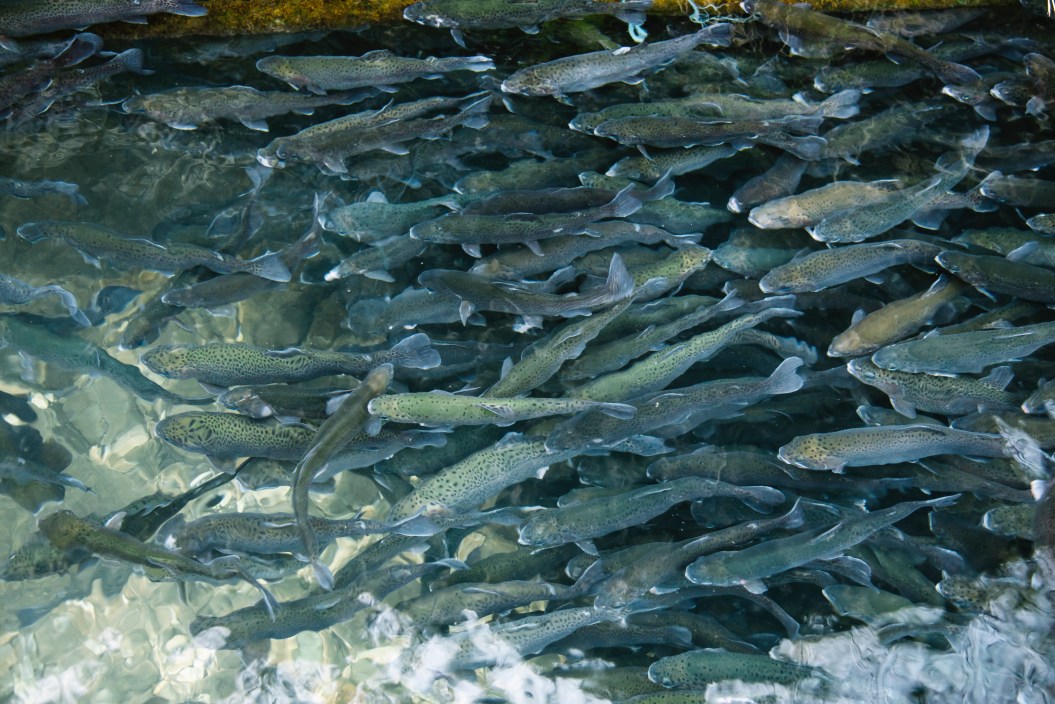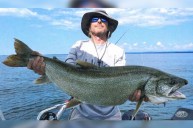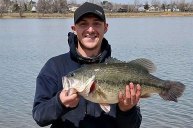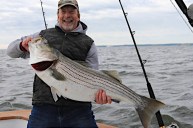Invasive species in local waters have long been an issue for state wildlife agencies, and they've devised many creative solutions for trying to get rid of the pests. Montana has been holding one of the more creative—and potentially effective—solutions biannually for nearly 43 years: The nine-week Mack Days fishing tournament, which encourages anglers to collectively catch tens of thousands of invasive lake trout on Flathead Lake.
This year's tournament, which just ran from March 16 to May 13, saw 200 anglers participate and all together, they were able to remove over 33,297 invasive lake trout in the iconic spot in northwest Montana.
Even though 33,000-plus lakers is a remarkable number, it doesn't beat the 2019 spring Mack Days event, which still holds the record for the most lake trout removed at 40,362 fish.
And even though Mack Days' participation has been down since the landmark 2019 event, this biannual contest is still considered an overarching success—especially because it's continuing to bring out new people: "We saw new faces in this event bringing in lake trout entries. That is one of the things that we need to continue to help in this effort," wrote the Montana Outdoor Radio Show.
How Mack Days Was Formed
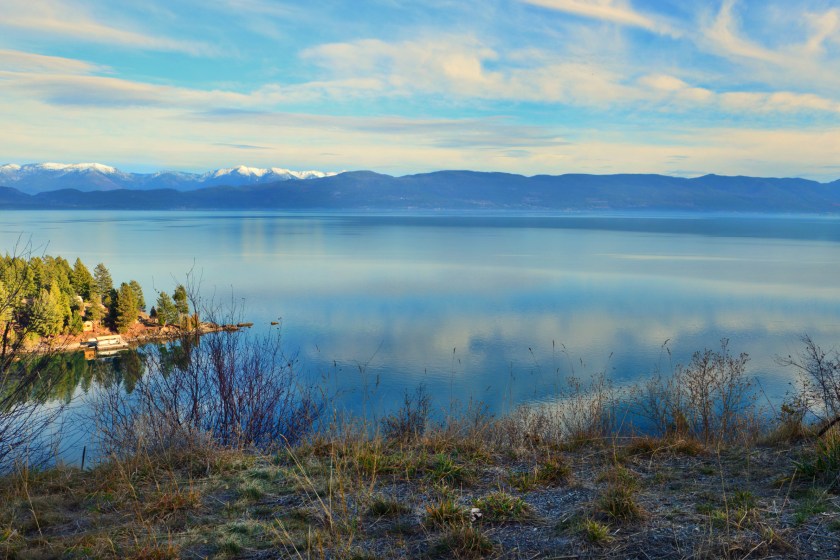
Getty Images, 11jasons
Whether it's zebra mussels, alligator weed, or lake trout, invasive aquatic species impact every type of waterway in the U.S. and removing these unwanted visitors increases the habitat quality for native species.
At Lake Flathead specifically, Montana Fish Wildlife & Parks seeks to remove the lake trout—commonly called lakers—because they prey upon native bull and westslope cutthroat trout, decreasing their populations.
Based on an Environmental Impact Statement conducted by NEPA in 2014 and several other management guidelines, Final Environmental Impact Statement (FEIS) managers proposed using a combination of fisheries population management tools, including angling and netting, to reduce the population of lake trout, Confederated Salish and Kootenai Tribes (CSKT) writes.
That keyword, "angling," is why CSKT and Montana Fish Wildlife & Parks (MFWP) implemented Mack Days back in 2002.
"Years ago, we acted on extensive data that indicated the need to suppress lake trout to perpetuate our native trout," wrote Barry Hansen and Cindy Benson in a Mack Days newsletter. They set a strategy in 2014 to incrementally reduce the adult lake trout population by 75%.
"This means, unlike many other suppression programs in other lakes, our goal is not total eradication of lake trout," Hansen and Benson continued.
Even once the population is reduced, there will still be need for an ongoing suppression program. "So our work will never be done, and we will always need help from anglers," they add.
Why Anglers are So Important for Removing Invasive Lake Trout
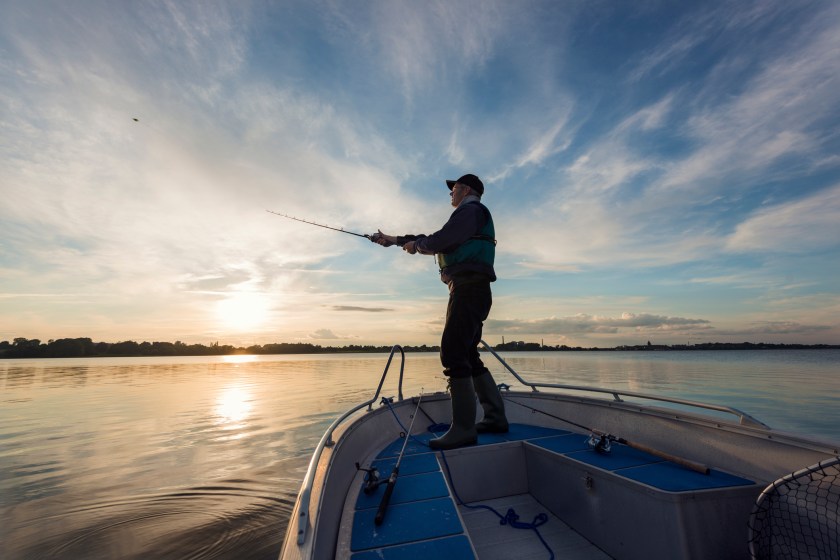
Getty Images, ClarkandCompany
Anglers are an essential tool for Montana's wildlife managers to help decrease the impacts of invasive lake trout on native trout species.
If anglers' participation in removing lakers decreases, managers will have to use gillnetting more frequently to reduce the lake trout population.
Unfortunately, gillnetting doesn't select for specific species; native trout are at risk of being gillnetted when using this conservation tool.
Anglers, however, can choose the species they remove and quickly return native fish to the lake. Keeping anglers as part of the lake trout removal techniques is a high priority.
Benson adds that another struggle has been fewer anglers participating in Mack Days, which obviously means fewer invasive lakers are caught. She points out that Mack Days' harvest has dropped by about one-third since 2019.
Who Won the 2023 Spring Mack Days Tournament?
The Mack Days tournament boasts the chance to win up to $225,000 in cash and prizes to incentivize anglers.
After nine weeks, Bryan Long of Kalispell caught the largest lake trout during the event weighing in at 36.6 pounds and measuring 45.5 inches long; he won $500.
But it was Montana angler Kolton Turner who took the grand prize, hauling in a whopping 2,089 lake trout over a 25-day stretch.
The tournament is sponsored by the Confederated Salish and Kootenai Tribes (CSKT) and sanctioned by Montana Fish Wildlife & Parks (MFWP).
Why More Anglers Should Fish Flathead Lake
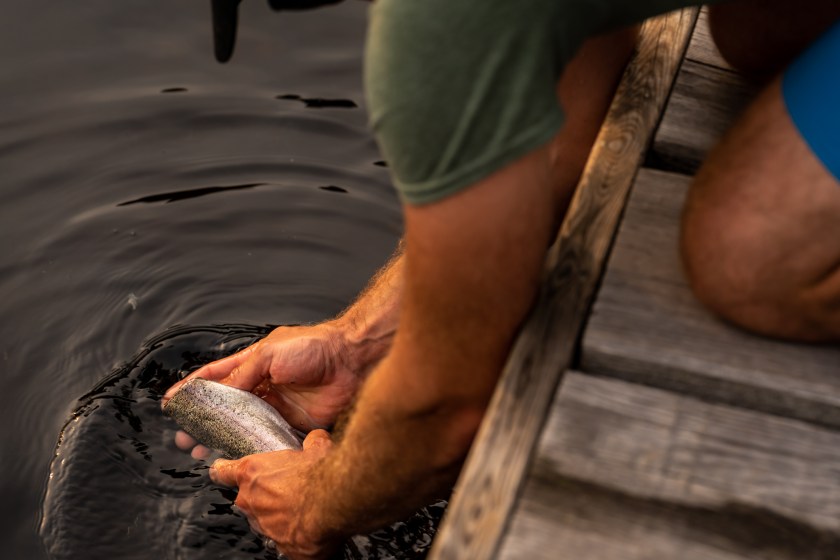
Getty Images, A&J Fotos
If all this talk of fishing, prizes, and good company excites you, you can mark down the fall Mack Days event on your calendar. This year's fall contest begins September 14th and ends November 12th. There's no entry fee; register online and go fishing!
Montana's state fishing regulations also support high levels of take for lake trout. Even outside of fishing contests, anglers can keep 20 lake trout a day and have 40 in their possession in the western district, according to the 2023 regulations brochure. Flathead Lake is located within this district.
If you're planning on hitting Flathead Lake this fishing season, it's worth removing all the lake trout you can catch, even if a cash prize isn't on the table.
The lake also offers high-quality fishing experiences for other species, including whitefish, yellow perch, cutthroat trout (which are catch and release only), and more.
Keep in mind that the regulations for Flathead state that anglers can keep 100 lake trout a day and have 100 lake trout in your possession, only one laker over 36 inches can be kept, all fish 30 to 36 inches must be released, and a Flathead Indian Reservation Tribal Permit is required to fish the lake's southern portion. By following the state's regulations and the management guidelines for Flathead Lake, every angler can be proud of their role in supporting native trout species and helping them continue to exist for generations to come.
And if you see Kolton Turner out there, be sure to congratulate him for winning this year's spring Mack Days.
Read More: The Right Way to Decontaminate Your Fishing Gear
